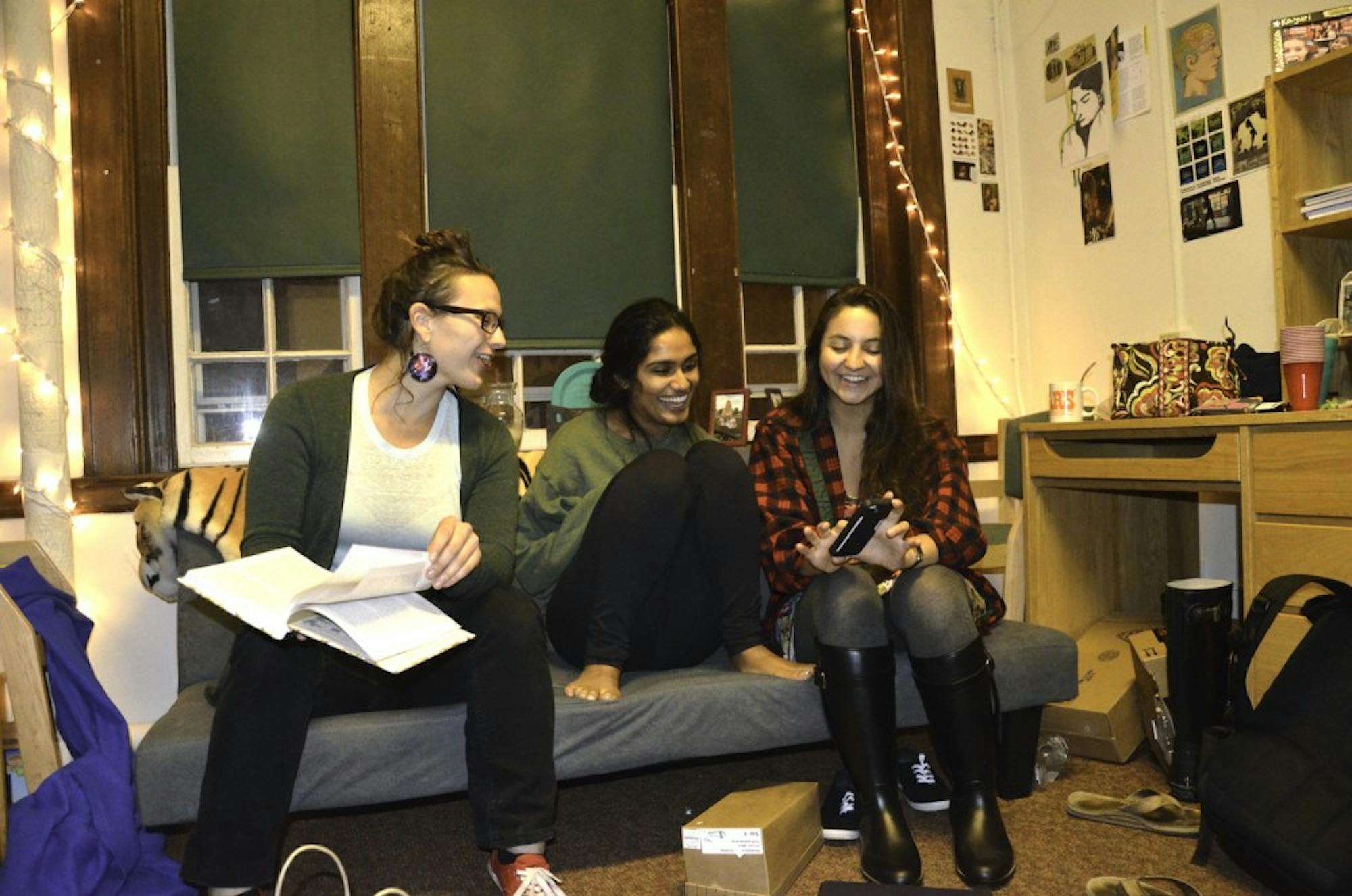Without planning, New Jersey neighbors Maddie Gilfert ’18 and Tiffany Zhai ’18 arrived at Dartmouth with the same desk lamp and nearly identical sets of blue, yellow, white and gray bedding. Friends since third grade, the two were one of the first pairs to request roommates this fall, under a new housing policy that allows incoming students to choose who they live with.
Fewer than 100 students requested a specific roommate, director of undergraduate housing Rachael Class-Giguere said.
Previously, the College assigned roommates either randomly or with the aid of a housing survey.
Class-Giguere said students have expressed a desire to choose their roommates for several years. The office was concerned that students who selected roommates might keep to themselves and socialize less, but she said they are interested to see how it pans out.
The shift accompanies other residential changes for freshmen, including the option to live in four living-learning communities, ranging from the longstanding East Wheelock cluster, founded in 1996 to integrate intellectual and residential life, to the new Triangle House, which will focus on LGBTQ issues. The two others open to freshmen are an entrepreneurship community and a global village, both new this fall.
Incoming students who did not request a roommate filled out surveys that asked how they intended to use their room, their preferred sleep hours and how many roommates they wanted. Surveys also noted whether a student preferred to live in single-sex or substance-free housing, Class-Giguere said, adding that the survey questions vary from year to year.
When the housing office receives student surveys, staff members first sort students by whether they were accepted into living-learning communities. After that division, students are automatically sorted into groups depending on their choice of substance-free and single-sex floors. Staff members then assign rooms based on the number of roommates requested, predicted sleep schedules and study habits, Class-Giguere said. Finally, if floors contain disproportionate numbers of men, women or international students, the housing staff adjusts the assignments.
They also ensure that no two roommates have the same first name or attended the same high school, she said.
Class-Giguere said that redistribution does not take into account factors such as race or membership on a sports team.
Research conducted at Dartmouth by economics professor Bruce Sacerdote suggests that freshman roommate assignments can affect students’ academic performance and social choices. His findings show that a student’s academic performance will, on average, improve slightly if he or she is matched with a high-achieving student.
Roommates and fellow residents can also affect students’ decision to join a Greek organization, Sacerdote said.
Sacerdote said that the most effective way to influence student behavior through roommate choices may be through matching students with different backgrounds.
“People do spend a lot of time with their roommates and their dormmates,” he said. “If you care about getting a lot of mixing — of athletes and non-athletes, of people of different races — I would encourage them to mix up dorms a great deal.”
He noted that selecting room assignments to increase student GPAs might not be effective.
“I’m not worried about students’ abilities to get work done and be productive academically,” Sacerdote said. “There’s only so much social engineering you can do.”
In addition to their shared dorm, identical lamps and matching bedding, Gilfert and Zhai both attended the horseback riding Dartmouth Outing Club first-year trip.
“Everybody told us we’d hate each other within two weeks,” Gilfert said. “But it’s been great so far.”
Zhai said that the decision alleviated a lot of the anxiety associated with going to college, but did not preclude the pair from branching out socially.
“We’re still pretty close with the rest of the floor,” Zhai said. “It’s nice — it’s hard to start from scratch with everyone.”
Zohra Aslami ’18 said she chose to live with her roommate, Chelsea Lim ’18, after meeting her at a Dartmouth acceptance party in Denver this year. Aslami said that the arrangement has been working well so far, and that they have found largely separate friend groups through their DOC trips.
Others interviewed chose not to select a roommate, citing a lack of prior relationships with incoming Dartmouth students or a desire to get to know someone new.




